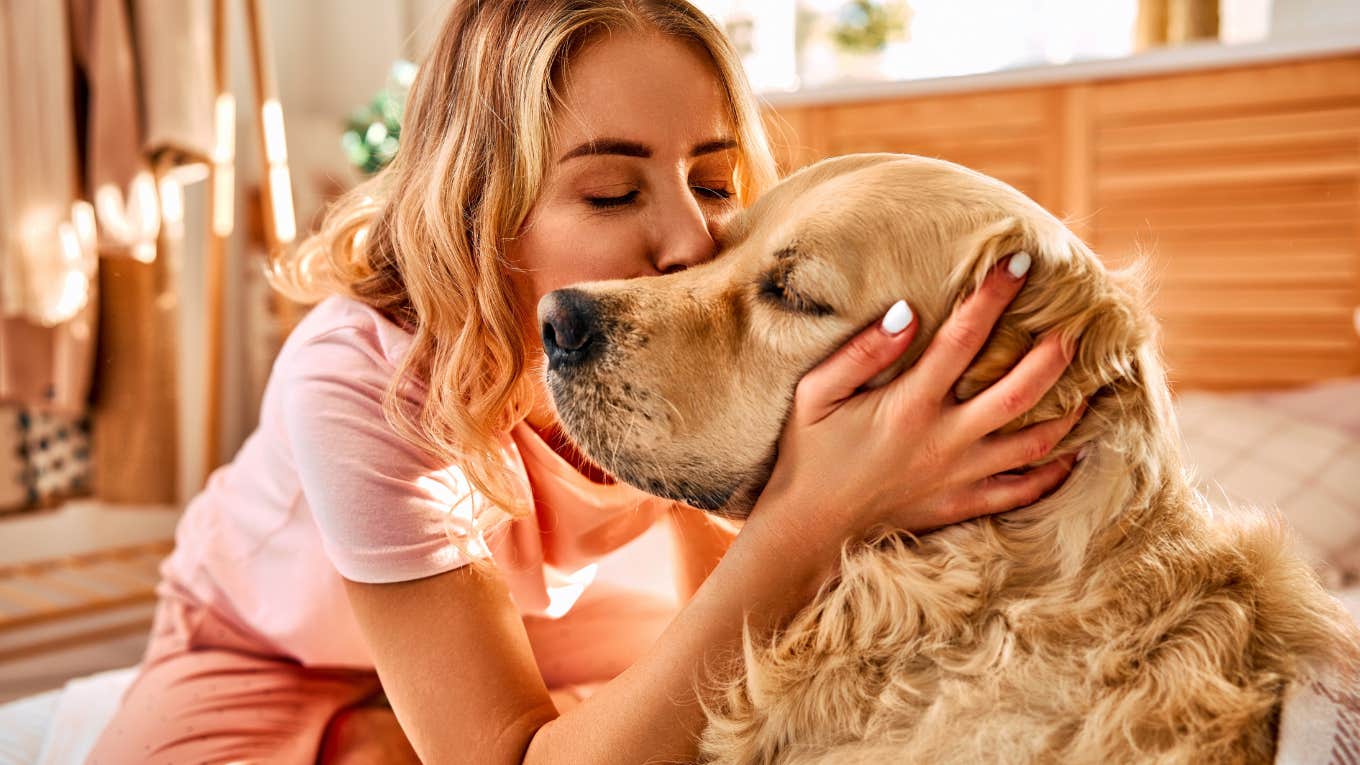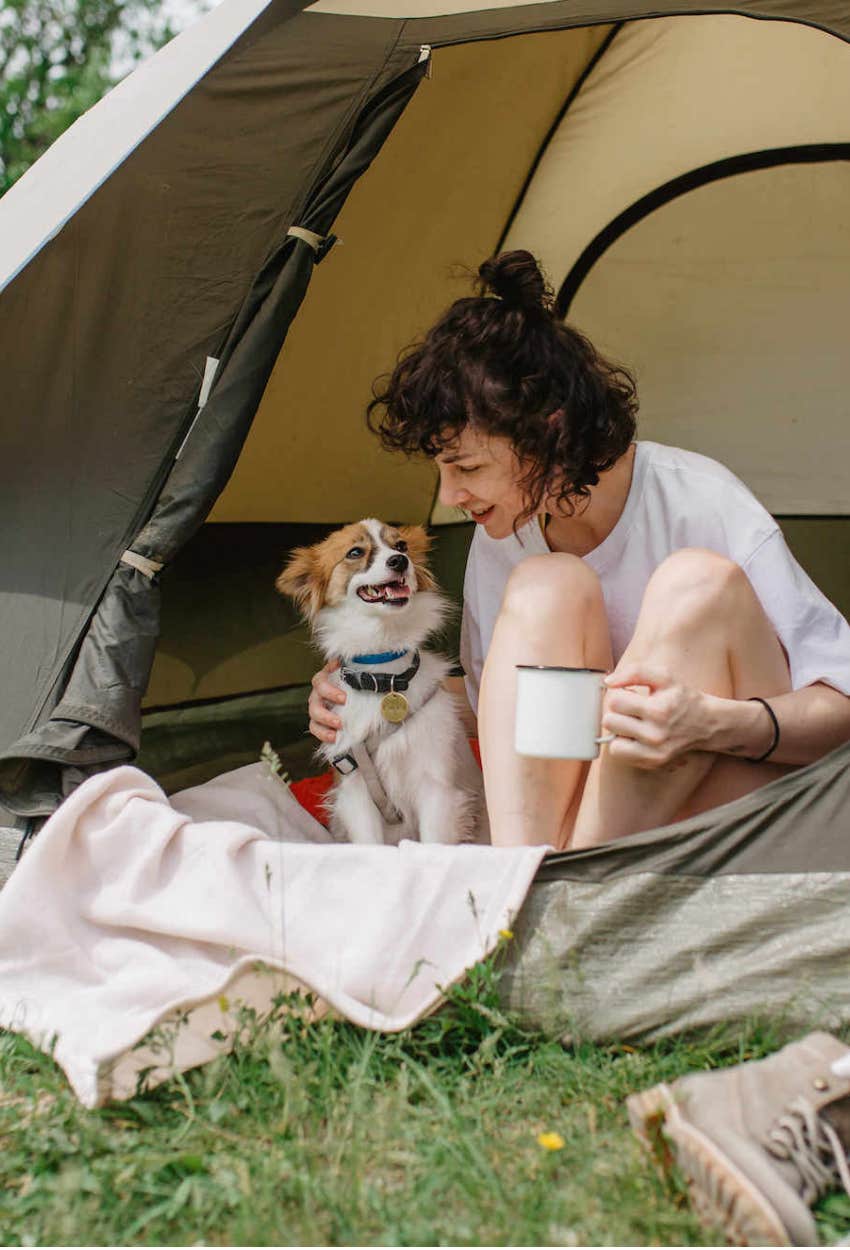Study Shows Gen Z Doesn’t Travel Because They’d Rather Stay Home With Their Pets
If Fido and Muffin can't come too, Gen Z's not going!
 Harbucks | Shutterstock
Harbucks | Shutterstock Just like the millennials before them, Gen Z does a lot of things differently now that they've reached adulthood, and a lot of those changes have been inspired by the economic landscape they've come of age in.
But there's one thing Gen Z is doing differently that might not have anything to do with money, it turns out: Their vacations. Specifically, their reluctance to travel, which a new analysis found has more to do with furry friends than light wallets.
Gen Z doesn't like to travel because they'd rather stay home with their pets, according to a study.
House and pet-sitting platform TrustedHousesitters decided to dig into why Gen Z seems to take far fewer vacations than their older counterparts. The answer seems obvious, of course: Who's got the money?
But after surveying 5,000 U.S. pet owners, they found an interesting trend among the young folks today. For nearly half of them, it wasn't money keeping them home, but rather their pets making them opt for staycations rather than lying on a beach.
Nearly half is not the majority, of course. More Gen Zers are traveling than those who aren't. But TrustedHousesitters also found that even among those Gen Zers who are taking trips, their pets are largely running the show.
Gen Z respondents also said their pets figure heavily into both their planning and enjoyment of travel.
One statistic is more illustrative of this topic than any other. TrustedHousesitters found that nearly 60% of Gen Z worry more about their pets' well-being while on a vacation than they do about their own enjoyment. Call it helicopter pet parenting: Young adults said they're fixated on their dogs and cats while they're away.
Four in 10 said they spend huge amounts of time while traveling, glued to their phones, checking in on, monitoring, and even FaceTiming with their pets. Additionally, 20% said they'd rather their partner stay home to care for the pets than join them on a vacation.
 Jannet Trofimova | Studio Russia | Canva Pro
Jannet Trofimova | Studio Russia | Canva Pro
"We’re seeing a clear cultural shift, particularly among younger, child-free adults who consider their pets to be their children," said Angela Laws, Community Manager at TrustedHousesitters. "They’re not just companions — they’re family. And that’s showing up in everyday decisions about travel, social life, and emotional well-being."
Accordingly, 58.7% said they plan their trips specifically around pet-friendly accommodations, 40.5% said they only travel if Fido or Muffin can come along, and nearly 6 in 10 said they feel "bad pet parent" guilt if they leave their pets home too long.
Pet parenting anxiety seems to be impacting other parts of Gen Z life, too.
Gen Z has become fairly infamous for having much higher levels of anxiety than the rest of the population. They're not called "Generation Anxiety" for nothing, with some analyses showing that as many as 61% of Gen Zers have been clinically diagnosed with an anxiety disorder.
Suffice it to say, their anxiety is showing up in the pet-parent parts of their lives, too, and not just on vacations. More than two-thirds told TrustedHousesitters they'd rather take a break by calling in sick to work than go on vacation without their pet.
Almost 1 in 4 said they feel more guilty traveling without their pet than they do canceling plans with a friend, and 16.9% said they'd rather skip a family birthday party than leave their pet. Nearly 1 in 5 even said they feel less guilty ghosting the people they date than vacationing without their pet.
Laws said this is about far more than just helicopter pet parenting. "We’re not just seeing changing attitudes; we’re seeing a redefinition of family structure,” she said. For Gen Z, it seems "pets are a center of family life" to a larger degree than previous generations, and Laws said that means "every plan, trip, or decision includes them" for a growing number of Americans. It seems for Gen Z, it's "have pet, will travel — but only if they can come too."
John Sundholm is a writer, editor, and video personality with 20 years of experience in media and entertainment. He covers culture, mental health, and human interest topics.

